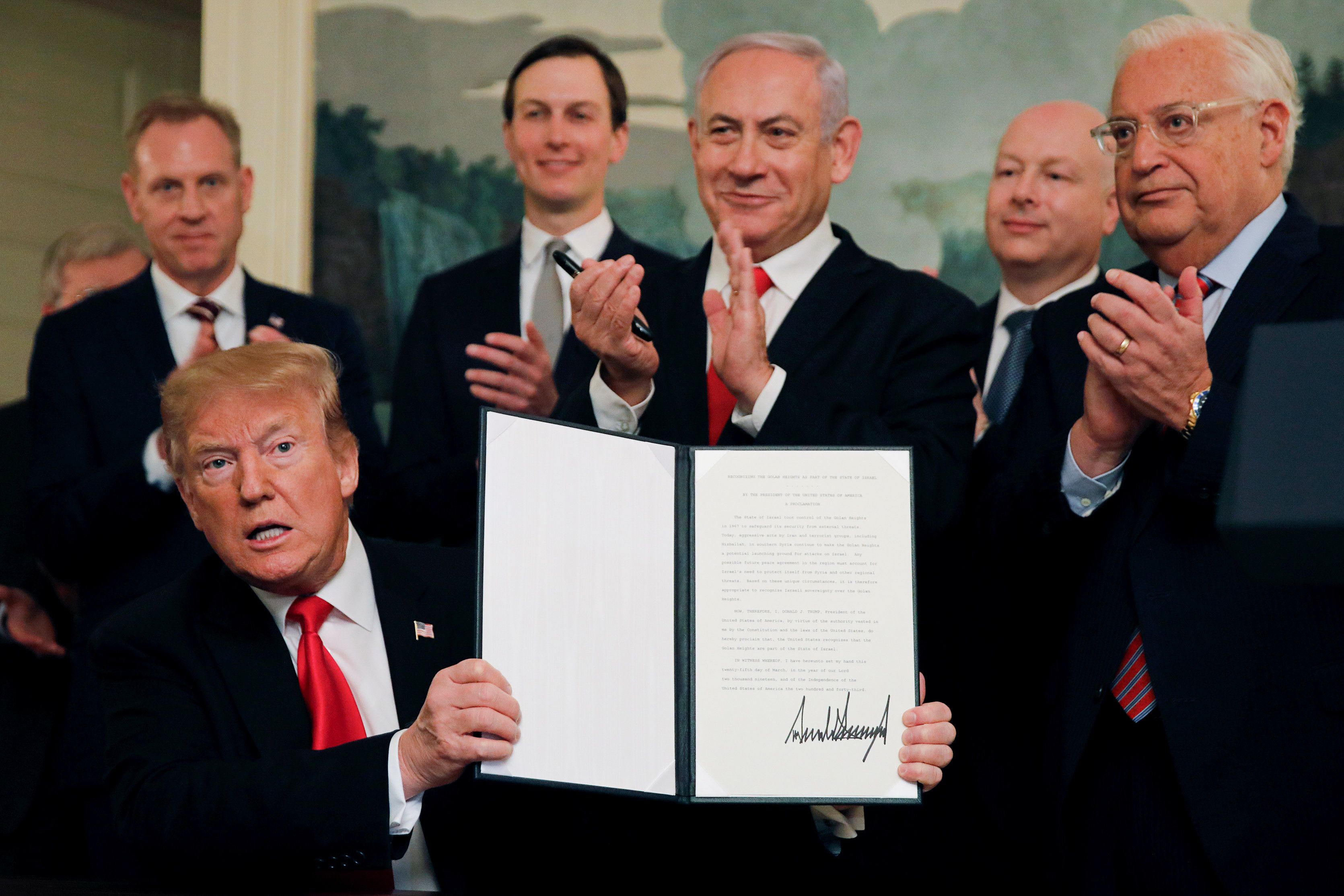Yesterday afternoon, US President Donald Trump scrapped five decades of US policy by officially recognizing Israeli sovereignty over the Golan Heights, a swath of water-rich, strategically important land seized from Syria when the two countries went to war in 1967.
The biggest beneficiary of the move is Israeli Prime Minister Benjamin Netanyahu, who was standing by President Trump's side as he signed the order.
The US decision will give Bibi a boost ahead of his bid to win re-election next month. After all, securing US recognition of Israeli sovereignty over Golan has long been a symbolic goal for Israeli politicians.
Netanyahu needs all the help he can get right now. He's running against a strong opposition alliance led by his former army chief, Benny Gantz, and he's facing multiple corruption investigations.
Recent days have brought two more challenges. First, a rocket fired from Gaza on Monday struck a house in central Israel, injuring seven people. Shifting the election campaign focus toward security might help the famously hardline prime minister, who cut short his DC trip to oversee Israel's response to the attack. But it could also expose him to criticism: after all, Netanyahu serves as defense minister as well as prime minister. If rockets from Gaza can still hit Israeli homes, how effective has his hardline policy been?
Second, Netanyahu faces fresh allegations that he personally profited from a transaction in which he improperly authorized the sale of advanced German-made submarines to Egypt without the approval of top military officials.
The clear signal: Trump considers Netanyahu a close ally and is doing all he can to help him win re-election. Netanyahu, for his part, has put his relationship with Trump at the center of his campaign. Will it work?
Bigger picture: Recognizing Israeli sovereignty over Golan sets a welcome precedent for other countries maintaining occupations that are illegal under international law. Not surprisingly, Russia leapt to make the comparison with Crimea, which it annexed from Ukraine in 2014.